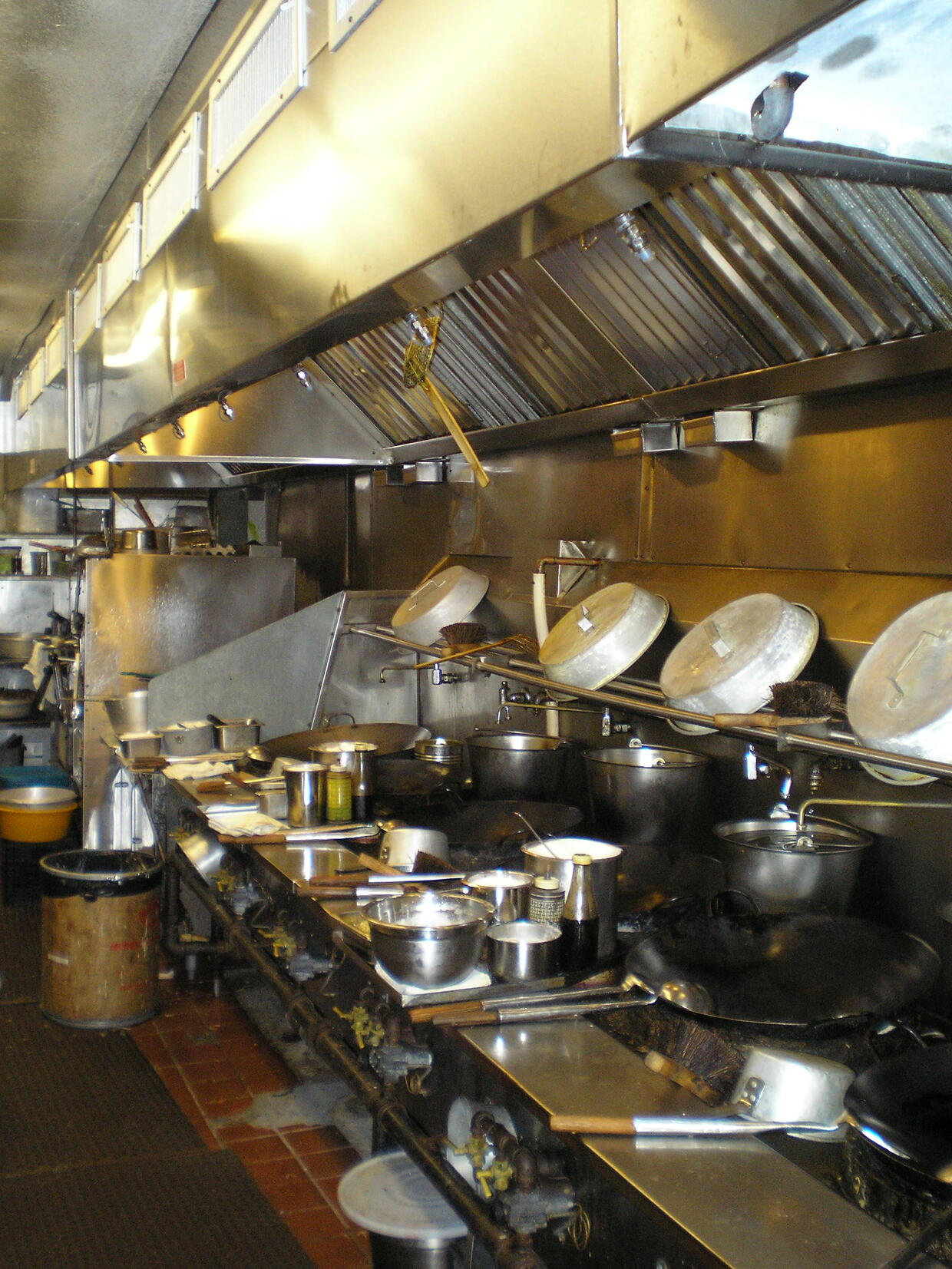Hood Cleaning Inspections
DFS has information for restaurant owners on hood cleaning and inspection in English, Portuguese and Chinese.
All cleaning and inspections must comply with the regulation based on the State Fire Code (527 CMR 1.00 Chapter 50). Inspection frequency is mandated (see below) and inspection results determine if the system must be cleaned. If a restaurant owner believes the work performed does not meet the code they can file a complaint with the local fire department.
Inspections must be done by holders of a Type 1 license. Holders of the Type 2 restricted license cannot perform inspections, only cleaning of systems on their own property. The Division of Occupational Licensure provides oversight and licensure of sheet metal work, including work related to commercial cooking operations.
Massachusetts law allows for licensing action and criminal penalties for performing commercial hood cleaning and inspection work with a suspended or revoked license and for falsely representing oneself as licensed to perform this work. Businesses may also be held responsible for knowingly allowing their employees to falsely represent themselves as valid license holders.
Contact the Boston Fire Department for requirements in Boston businesses. Please be aware that the City of Boston has additional requirements that require commercial cooking exhaust cleaners and inspectors to be registered with the city. Please contact the Boston Fire Prevention Division at 617-343-2019 if you have any questions.
Schedule of inspections for grease build-up
| Type of or volume of cooking | Inspection Frequency |
|---|---|
| Systems serving solid fuel cooking operations | Monthly |
| Systems serving high-volume cooking operations such as 24-hour cooking, charbroiling, or wok cooking | Quarterly |
| Systems serving moderate-volume cooking operations | Semi-annually |
| Systems serving low-volume cooking operations such as churches, day camps, seasonal businesses or senior centers | Annually |
The regulation requires the head of the fire department to issue a cease and desist order at any facility that has not had an inspection within the past twelve months, in accordance with Table 50.5.4.
Additional Resources
Labels
Labels must be fixed to commercial cooking equipment, in accordance with the State Fire Code (527 CMR 1.00: 50.5.6.13). Content, size, design and placement is prescribed by the State Fire Marshal.
Notice of Non-Compliant Systems
Whenever a person holding a certificate of competency finds an out-of-compliance commercial cooking operation related to grease build-up, they must notify the local fire department within 48 hours, on a Notice of Non-Compliance form, and provide the owner of the system with a copy.
Additional Resources
-
Open PDF file, 52.3 KB, Notice of non-compliance form (English, PDF 52.3 KB)
Records
The person holding a certificate of competency shall produce records of each inspection and cleaning activity. The regulation prescribes the information that must be on the inspection and cleaning forms. The owner or operator of a building and the person holding the certificate of competency must maintain the records for at least three years.
Contact
Online
Phone
Open 8 a.m.- 4 p.m.
